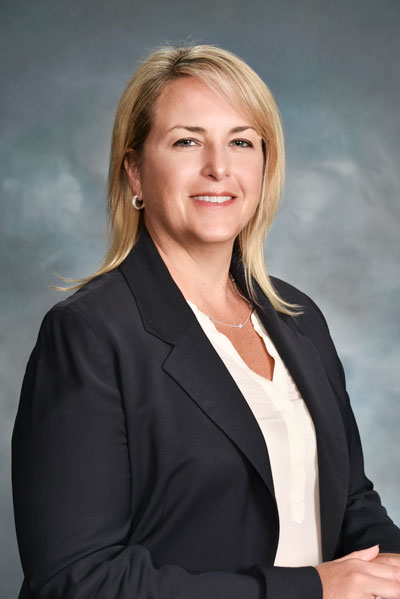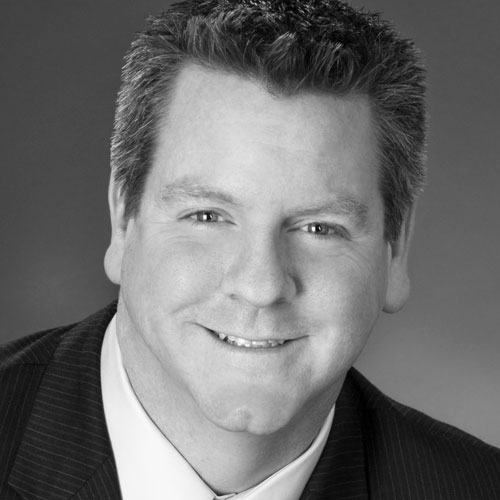Compliance wasn’t Deborah Penza’s first career choice.
The Florida Atlantic University political science major went to George Washington University to continue her studies. She envisioned a job at the CIA or FBI in her future. In Penza’s second year of study, however, she took a job temping for several lobbying firms that shared an office space in the Washington, DC, area—a choice that set her on a career path in an emerging new industry.
“I took a combined role at one of the lobbying firms as an administrative assistant and legislative analyst,” she says. “Two months after I took that job, Richard Kusserow retired as the inspector general of the US Department of Health and Human Services and joined the firm, which was quickly split into two companies: Strategic Management Associates Inc. and Strategic Management Systems Inc. I was fortunate enough to be the first employee of Strategic Management Systems.”

After decades working for the CIA, FBI, and HHS, Kusserow developed a deep knowledge of the healthcare industry and its compliance-related risks. Compliance was a rapidly growing field, a byproduct of 1980s government procurement scandals and the newly adopted Federal Sentencing Guidelines. As a result, Strategic Management Systems quickly emerged as one of the first healthcare consulting firms that focused on corporate compliance.
“I think the wide implementation of compliance programs was the natural progression of things,” Penza says. “If you look back at the period of time in the 1980s, there were a significant number of scandals involving defense industry contractors fraudulently billing the federal government. Compliance programs as we know them today evolved from the defense industry’s efforts to institute controls to minimize the likelihood of such events. They were really the pioneers of modern-day compliance.”
Penza says that the firm’s early years weren’t the most well planned out. “True to Dick Kusserow form, we just kind of winged it,” she says. “No one had really ever created a compliance program for the healthcare industry. We were developing compliance programs from scratch that were designed to meet the minimum requirements set forth in a footnote in the sentencing guidelines.” Although it started with less than twenty-five employees, Strategic Management Systems emerged as one of the most well-regarded firms in the field. “The running joke was that if you were under federal investigation, you came to us for your corporate compliance program,” she says.
Kusserow was instrumental in keeping Penza in her current career path. “I was scheduled to sit for the FBI exam, and I think that one of my colleagues leaked it to Dick,” she says. “A few days before the exam, he called me in and gave me a raise. I never looked back.”
Penza’s decision to stay at Strategic Management Systems set her on a path that would take her to multiple countries and large pharmaceutical companies.
During her nearly ten years at Strategic Management Systems, Penza helped construct the compliance program from the ground up, training thousands of employees across multiple sectors of the healthcare industry—and ultimately becoming the only employee with a noncompete agreement. Elan Corporation contacted Strategic Management Systems to help implement a compliance program ahead of a pending FDA consent decree. The company mentioned that it was also looking to staff its program, which was appealing to Penza because the company was international. So in 2001, she left Strategic Management Systems with Kusserow’s blessing and full support.
Around half a year after Penza joined Elan, Art Falk took over as chief compliance officer. “We were a perfect fit because his background was in pharmaceutical quality,” she says. “Together, we set up a compliance program. It was actually Art that made it possible for me to attend law school.”
In the early 2000s, law degrees were rapidly becoming a prerequisite for compliance. “By the time I was at Elan, the field had evolved to the point where companies were looking for lawyers to fill the compliance officer role,” Penza says. “To stay there and be a compliance officer, I really thought I needed that credential.”
So in 2002, Penza enrolled in law school. At the time, she was traveling more than one hundred thousand miles a year to multiple countries for Elan. “In hindsight, I don’t know how I did it,” she says.
Penza’s experience traveling gave her a strong sensitivity to other cultures. She says that it’s important for visiting workers not to presume too much understanding of other countries’ cultures.
Once, in Israel, Penza was training employees in a medical device manufacturing plant. A colleague recommended that she cut out a case study on sexual harassment because it would not be relevant to the workforce. At the end of the training, Penza asked the workers if there was a topic they would have liked to discuss. “And don’t you know that the subject that came up was sexual harassment,” she says. “There was a case in Israel at the time that involved a rabbi who had been accused of sexual harassment. Shortly after the announcement that he won the court case, a number of other women came forward to describe what he’d done to them. It was big news at the time and employees were curious about the topic.”
Penza left Elan before its merger with Perrigo to take a job with Watson Pharmaceuticals, which had recently acquired the Arrow Group—a purchase that took the company’s commercial sales and marketing activities international.
“Up to that point, they did not have a full-time compliance officer,” Penza says. “One of the company’s attorneys was trying to manage compliance on a part-time basis in addition to her other responsibilities. It was a fantastic opportunity for me to come in and take the program to the next level while obtaining a significant amount of M&A experience.”
During her time at Watson the company completed a number of high-profile acquisitions, including Actavis in 2012, at which time Watson assumed the Actavis name. At that time, Penza had traveled to countries as diverse as China, Bulgaria, and Serbia. However, she learned her lesson from past experience at Elan to accept when it was time to move on to a new position.
A past colleague had become the CEO of Impax Laboratories. Penza told him that she was looking for a new position. “It turned out that he was looking for a compliance officer,” she says. “If anyone ever tries to tell you that pharma is not a small world, they don’t know what they’re talking about.”
Penza is now senior vice present and chief compliance officer at Impax. She reports to the CEO, is a member of the executive committee, and oversees the compliance program and related activities. In addition, she was recently assumed responsibility for the company’s pharmacovigilance team, which monitors drug safety.
One of the things that has stuck out to Penza over the years is the continuous changes compliance undertakes due to technological advancement.
“The one that keeps me awake at night is cybersecurity,” Penza says. “Beyond cybersecurity is this whole idea of artificial intelligence and the Internet of Things. What does that mean for our industry and what does that mean for compliance?”
She says new technology should always be a consideration for compliance officers. “For compliance officers, staying on top of the evolution of technology and identifying and understanding the risks and benefits that it potentially creates for the business is going to be our biggest challenge in the next decade,” she says.
Photo by Kelly & Massa Photography
Medical Leverage has been a proud partner of Deb Penza and the rest of the Impax team for over five years. Our ability to work across departments supporting many initiatives from the compliance, sales training, and marketing departments has allowed us to truly become a partner with Deb. We wish her nothing but future success.

